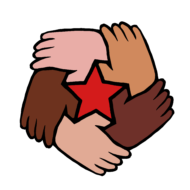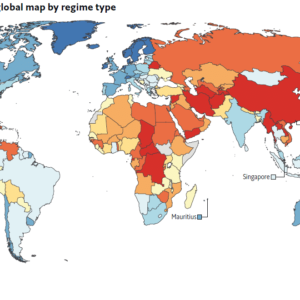In recent months, there seems to have been an increasing number of conversations about the presence of misandry in leftist spaces. Those who dislike its existence say that it’s alienating to men, and that we shouldn’t tar all men with the same brush. While those who support the presence of “misandry” say that we shouldn’t tone police oppressed groups, and that any man who’s dedicated to socialism will find no reason to be offended.
Before we come to any conclusions about this, it would be wise to examine the roots of misandry, to understand why it occurs and what function it serves.
Misandry and Misogyny
No discussion of misandry would be complete without a discussion of misogyny, as it’s simply not possible to understand the roots and function of misandry in a vacuum.
If we look at the dictionary definitions of misandry and misogyny, they seem to both be the same thing but directed at different genders.
- Misogyny, noun: hatred of, aversion to, or prejudice against women.
- Misandry, noun: a hatred of men.
(Definitions taken from merriam-webster.com)
Unfortunately, these definitions are so simplistic that they become misleading.
Globally, patriarchy is used to help maintain a hierarchical order that protects and enforces class society. Misogyny manifests itself as a function of that, and acts as a tool to keep women and queer people oppressed below cishet men, who reap its systemic advantages.
In some countries we find that women aren’t allowed to leave home without a related male chaperone, while in all countries women are expected to cover their bodies to at least a minimum standard or face harsh consequences. Sometimes the consequence is slut shaming, and sometimes it’s being beaten for immodesty. Women and girls in some countries are forced to stay away from men during menstruation, because they’re considered unclean. In others, a woman can’t get a driving licence without her husband’s permission. In all countries, even the so-called enlightened liberal democracies, women are still sexually objectified, harassed, treated as less competent than men, and treated as less important in all areas, from medicine to employment. This is misogyny in action.
Misogyny didn’t fall from the sky and neither has it existed as an eternal reality. Misogyny has clear roots in the division of society into classes. The first split in society was that which turned women into the property of their menfolk. Men needed a way to pass down their wealth to children who were almost certainly their own, and so the wife became the property of the husband, relegated to their private home, and an entire belief system grew up to enforce this arrangement.
Though the forms it takes vary between time and place, misogyny, and the patriarchy it upholds, have survived as a tool of oppression through slave societies, feudalism, and now during capitalism. The systematic control of womens’ bodies is useful to those who would maintain an unequal society. By creating a privileged group of patriarchs, you also give them an incentive to maintain the current social order, alongside the resources to help them do so.
Where does misandry come from?
Unlike misogyny, misandry isn’t a systemic issue. There’s no country on earth where the entire legislature is made up of women and denies men their political rights. There’s no country on earth where girls are raised to believe that it’s fine to objectify boys and men, leading to women harassing and abusing them on a massive scale. There’s no country on earth where men fear to walk the streets alone at night in case they get raped by women.
If misandry isn’t a tool to enforce the class hierarchy in the same way that misogyny is, where does it come from?
Misandry is a reaction to misogyny. It’s the resentment that the oppressed comes to feel towards their oppressor. A woman, or other non man, who says that they hate men, or otherwise makes negative statements about men, is generally doing so because they’ve directly suffered at the hands of patriarchy.
Men I barely know unload their emotional problems onto me and try to get me to be their therapist. They sexually harass me and pester me. They routinely talk over me in conversations, talk down to me, or brush my views aside until a man says the exact same thing I said. I’ve been sexually assaulted by a man I didn’t know. When one of these things happens yet again and I cry: “Why are men?”, it’s an expression of frustration at the ongoing mistreatment – at the unfairness of a world that sees men routinely feel empowered to violate or sideline me. It’s not an expression of disdain due to believing that men are inherently inferior to me and exist for my use.
This is why many on the left say that misandry isn’t real. Not because we believe that women and non-binary folks can’t feel contempt for men and lash out at them, but because it’s not a systemic issue. If a woman lashes out at a man unfairly because of those feelings, it’s not the result of systematic degradation of men that makes her feel empowered to abuse him, it’s the result of an individual lashing out due to the trauma inflicted on her by patriarchy. If she acted inappropriately, that’s something to be addressed, but it’s not something equal to the systematic nature of misogyny.
Not All Men
After having had this conversation a number of times, this one knows that there are some readers saying: “I can see that point of view but I still think it’s wrong to be prejudiced against a whole group based on something that they have no control over.”
To them, I say: feeling frustrated towards a group that oppresses you is perfectly natural and, in fact, healthy. It’s not the job of the oppressed to identify which members of the oppressing group are on their side, or to pander to their feelings.
No harm is done to you by a woman saying that she hates men. But harm is done to women when men spread degrading attitudes about them, because it reinforces the culture in which it’s acceptable to abuse and exploit women, girls, and queer people. These two things are not the same.
Anti Men Discourse on the Left
The left is a broad term that encompasses a large number of groups, from Social Democrats to Communists. Leftist spaces are similarly diverse and have varying views about liberation struggles.
Many spaces on the left aren’t safe spaces for women and other oppressed groups. While many communist spaces pay lip service to liberating women and ending patriarchy, they allow the continued existence of sexism in their spaces, in the guise of everything from allowing misogynistic “jokes” to assigning women an outsized portion of cooking and cleaning duties in some parties. Women are routinely talked over and condescend to, even if the most obscene and obvious acts of sexism are banned outright. This is despite a greater proportion of women than men being communists.
Those spaces that are safe for women, where women are finally allowed to have free expression without men being allowed to run roughshod over them, naturally see women feel able to express their frustrations publicly. The “misandry” you see in these safe spaces is what happens when an oppressed group finally feels safe to speak candidly about its oppression.
The way to eliminate the “misandry” in these spaces isn’t to insist that women shut up and stop being hateful, it’s to dismantle patriarchy so that women aren’t oppressed in the first place. Creating spaces where women feel empowered to talk about their experiences is one step in that process.
If you’re a man in these spaces, you’re being given a view into women’s experiences that most men don’t see. You’ll be a better leftist if you listen and learn, than if you tell oppressed people “not all men.”





